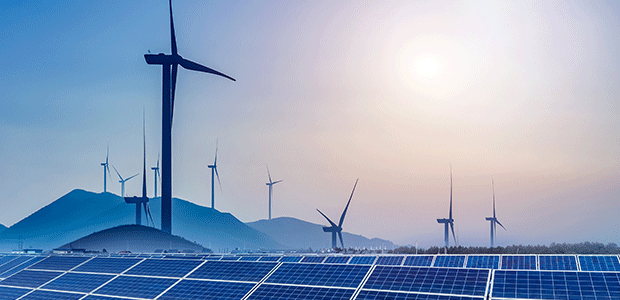
Increasing Worker Safety in the Renewable Energy Industry
As renewable energy use becomes more common, protecting those who work in the industry should be a priority.
- By Jane Marsh
- Jan 06, 2021
Every industry comes with its fair share of risks, and the renewable energy sector is no exception. Thankfully, fatal incidents are few and far between. However, injuries are relatively common. Confined spaces, electrical currents, heavy machinery and tall equipment can prove quite dangerous, especially if employees are unaware of risks.
Thus, in order to increase worker safety within the industry, employers and companies must begin standardizing training, evaluating potential risks and establishing a culture of safety. Here are a few ways you can start improving safety at your facility.
Evaluate Potential Risks
Of course, one of the best ways to reduce risks is to become more aware of them. Renewable energy projects involve many of the same hazards as those at construction sites. Falls, burns, electrical shocks and arc flashes all pose some serious dangers to workers. However, the renewable energy industry’s unique nature can exacerbate these risks and make them more deadly.
For instance, a construction worker may fall from a two or three-story building and live to tell the tale. However, someone working on a 100-foot-tall wind turbine has little chance of surviving if they fall from a tower. Therefore, surveying the worksite and inspecting infrastructure on a regular basis may be helpful in determining potential risks and safeguarding against them.
Fulfill Training Requirements
Managers and supervisors are sometimes more aware of risks than workers are. Ensure everyone understands potential dangers and how to complete tasks safely by establishing ongoing training programs. Make sure each employee fulfills training requirements and has a working knowledge of all necessary equipment and machinery. Incentivize their personal and professional growth by offering promotion opportunities and bonuses, and hold weekly meetings to make sure everyone on your team is on the same page regarding safety precautions.
In addition to any job-specific training programs, employees should also comply with all safety precautions set forth by the OSHA. For instance, solar energy employers connected to the grid must abide by OSHA’s Electric Power Generation, Transmission and Distribution Standard. Maintenance work involving wind turbines also falls under OSHA’s jurisdiction, which seeks to protect employees from falls with a series of protective measures.
Collaborate and Establish Expectations
As the renewable energy industry continues to expand, providers will transition to large-scale operations and more sectors will have to follow OSHA safety requirements. Eventually, utility-scale wind, solar and geothermal energy solutions will surpass traditional power and fall under strict government legislation. Until then, small companies must collaborate with one another to establish safety expectations across the board.
Of course, standardizing requirements and training programs will require communication, cooperation and time. However, many major manufacturers have already begun to collaborate and establish standards regarding the fundamentals. For example, global leaders in wind power came together to create the Global Wind Organization, which now offers courses to reduce risk and safety hazards within the industry. Modules offer training in first aid, blade repair, advanced rescue, slinger signaler and various other basic safety protocols.
Maintain Equipment and PPE
Maintaining equipment can also increase worker safety in the renewable energy industry. Schedule routine inspections to ensure heavy machinery and equipment works properly and efficiently. You may also install driver waning systems, rollover protection structures and other precautions to prevent unnecessary injury. If you perform maintenance work often and still have to replace equipment or parts, you may have to improve training to teach employees how to handle the equipment more carefully.
Even if employees take all of the necessary precautions and maintain equipment properly, accidents can still happen. Therefore, it may be wise to invest in some high-tech PPE. Sure, they already have helmets and reflective vests, but can that gear sense when an object or vehicle gets too close? Find smart PPE that alerts employees of dangerous situations and monitors their health so they can stay safe on the jobsite.
Building a Culture of Safety
Renewable energy is poised to surpass oil, coal and natural gas within the next few decades. As geographical connectivity of solar, wind and hydropower increases, the industry will continue to grow and provide more jobs to people all over the world. Therefore, it’s essential to create a culture of safety so workers can stay healthy and happy even as their jobs become more demanding.
By establishing safety protocols, training programs and maintenance checklists now, the renewable energy industry can prepare for a bright future that benefits people and the planet simultaneously.
About the Author
Jane Marsh is an environmental writer. You can keep up with her work on her site Environment.co.